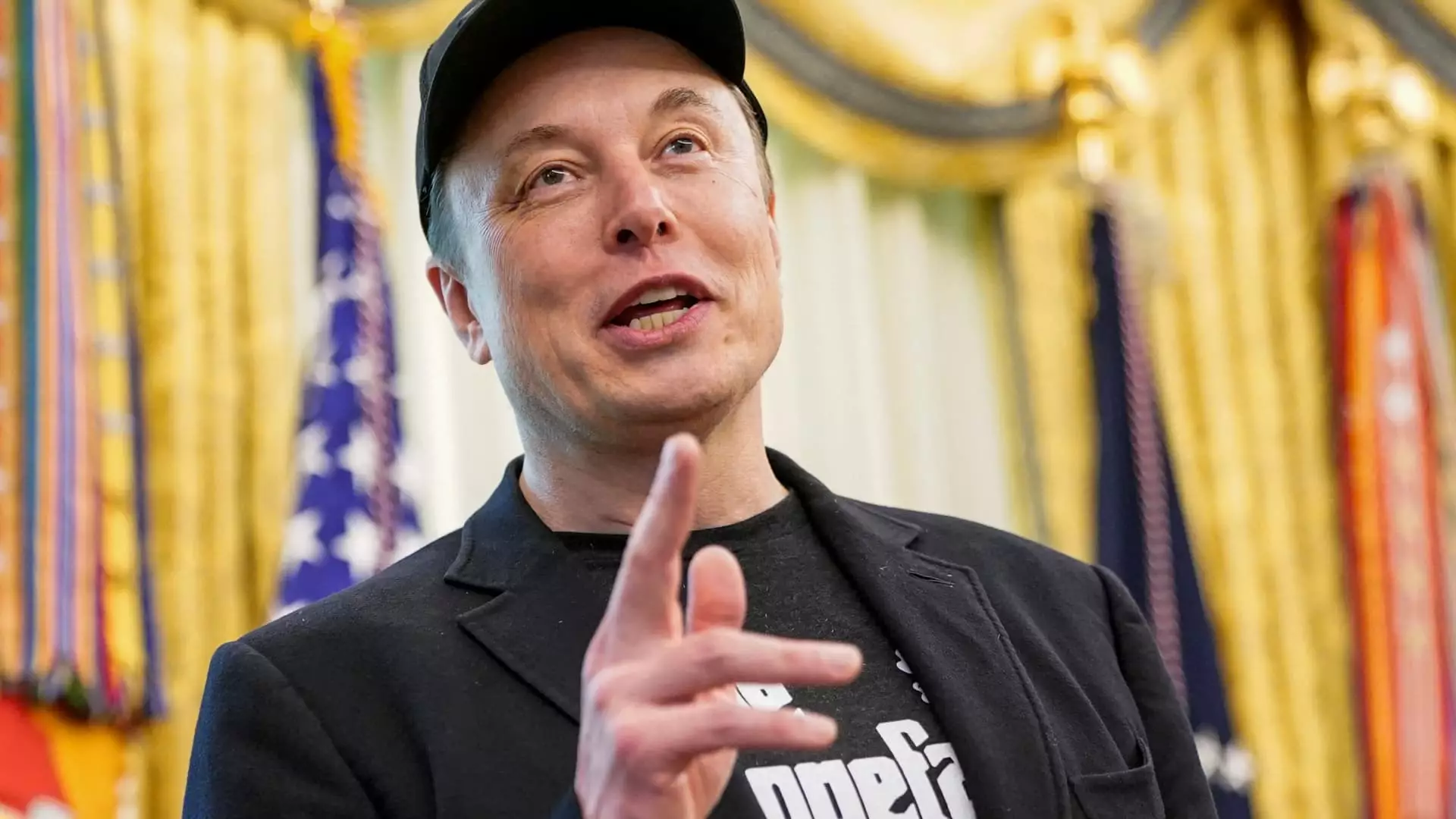On the bustling stage of American politics, few figures are as polarizing as Elon Musk. His recent virulent condemnation of the tax-and-spending cut bill championed by former President Donald Trump encapsulates a simmering tension around fiscal responsibility. Musk, who previously basked in Trump’s glory as a temporary government employee, pivoted dramatically to label the bill a “disgusting abomination.” This stark denunciation was driven not only by the contents of the bill but also by the broader implications it holds for the American economy. Musk, whose opinions can dramatically sway public sentiment, has become an unlikely torchbearer for fiscal conservatism at a time when bipartisanship seems a quaint relic of the past.
The Financial Recklessness Revealed
At the heart of Musk’s critique lies his concern over the ballooning federal budget deficit. By estimating the impending increase in deficit to a staggering $2.5 trillion, Musk highlights a critical flaw in the bill—its potential to exacerbate an already precarious financial situation. The Texas-based billionaire argues that this fiscal irresponsibility will sink American families deeper into a quagmire of unsustainable debt. While promises of economic growth and job creation are often used to justify such measures, the reality is unsettling: reckless spending today threatens to create burdens for future generations. Musk’s expertise with technology and innovation doesn’t extend to economics, yet his intuition about the dangers of fiscal indiscretion bears merit.
The Political Backlash
Despite Musk’s critique, the White House remained unfazed. Press Secretary Karoline Leavitt dismissed Musk’s concerns as predictable from someone who previously offered hefty financial support for Trump’s political ambitions. This response subtly underscores a deeper dilemma in American politics: the disconnect between those in power and the citizens they govern. The administration’s unwavering defense of the bill, characterized as “one big, beautiful bill,” reflects an almost theatrical optimism that seems detached from economic realities. In a time rife with economic uncertainty, such audacious claims feel less like reassurances and more like deflections.
Voices from the Opposing Camp
Interestingly, Musk’s criticisms have found resonance with several Republican lawmakers who echo his fears of fiscal irresponsibility. For instance, Congressperson Thomas Massie, a noted fiscal conservative, openly supported Musk’s position, emphasizing “simple math” as the basis for understanding the dangers the bill poses to national financial health. Meanwhile, Senator Mike Lee vehemently condemned the Senate’s fiscal strategies that have systematically eroded the middle class through relentless deficit spending. This unexpected alliance between Musk and traditional fiscal hawks reflects a growing discontent within certain Republican ranks, showcasing an emergent divide on government spending that transcends party lines.
The Economic Consequences
To fully grasp the implications of this bill, one must consider its potential effects on everyday Americans. The promise of instant economic stimuli can often blind policymakers to the long-term repercussions of their actions. While proponents may tout temporary benefits, such as job growth and infrastructure improvements, history reveals a more sobering truth: unsustainable debt leads to inflation, a devaluation of currency, and ultimately a decline in living standards. This vicious cycle threatens to snuff out the very hope of prosperity that such spending is meant to cultivate.
A Call for Accountability
Musk’s raucous denunciation serves as a clarion call for greater stewardship over public finances. It challenges the notion that unchecked spending can be reconciled with future prosperity. In breaking ranks with the administration that once embraced him, Musk paints a picture of accountability that transcends the typically polarized landscape of American politics. His willingness to criticize those he once supported demonstrates a deeper commitment to the economic well-being of the nation—the very principle that ought to underpin our leadership.
In the end, it is not merely about balancing a budget; it is about safeguarding the future. As the debate unfolds, it becomes paramount that a comprehensive dialogue surrounding fiscal policy takes precedence over blind partisanship. Only through thoughtful reflection and genuine concern for the financial sustenance of all Americans can we hope to navigate the complexities of our economic landscape.


Leave a Reply